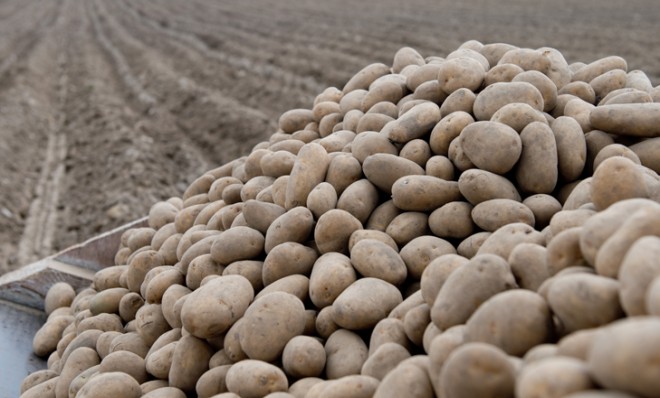The spud wars: Are potato farmers illegally fixing prices?
You may be paying more for those curly fries than you should

A free daily email with the biggest news stories of the day – and the best features from TheWeek.com
You are now subscribed
Your newsletter sign-up was successful
Associated Wholesale Grocers, a co-op that supplies more than 2,000 American grocers, is suing United Potato Growers of America, along with two dozen other defendants, for allegedly banding together to illegally manipulate potato prices.
The collusion by the so-called "Potato Cartel," which produces 75 percent of the nation's spuds, has supposedly driven up the prices of potatoes in the grocery section of the supermarket, as well as Tater Tots, curly fries, and other delicious snacks from the frozen food aisle.
AWG is claiming that for more than a decade, potato farmers have been using tactics — like reducing planting acreages and destroying crops — to reduce supply and push up prices.
The Week
Escape your echo chamber. Get the facts behind the news, plus analysis from multiple perspectives.

Sign up for The Week's Free Newsletters
From our morning news briefing to a weekly Good News Newsletter, get the best of The Week delivered directly to your inbox.
From our morning news briefing to a weekly Good News Newsletter, get the best of The Week delivered directly to your inbox.
The cabal has even reportedly used satellite imagery to make sure farmers aren't producing too many potatoes — what Associated Press reporter John Miller has described as "using Spudnik, if you will, from the sky."
UPGA, however, claims it is operating within the law — specifically the 1922 Capper-Volstead Act, which explicitly allows agricultural producers to "act together" to market their products.
The law allows producers "to agree on prices and terms of sale, engage in joint marketing activity, agree on common marketing practices with other cooperatives, engage in other combined activities, and thereby often achieve considerable market share and influence," The Packer, a fruit and vegetable trade magazine, says in an unrelated article.
"The act also has permitted cooperatives and their members to plan the supply of the products they will produce, just as a single corporation does, to achieve the most efficient results."
A free daily email with the biggest news stories of the day – and the best features from TheWeek.com
This protects farmers, says The Packer: "By allowing agricultural cooperatives to form, the act helps level the playing field between individual growers and the purchasers of their products, who tend, then and now, to be large corporate entities wielding heavy bargaining power."
Section two of the act, however, extends protection to the consumer, and says it's still illegal to monopolize or restrain trade "to such an extent that the price of any agricultural product is unduly enhanced."
It's still unclear exactly the degree to which the cooperative of spud farmers allegedly jacked up prices, and how much extra consumers paid for late-night potato goodies. But the case does highlight a problem with the 92-year-old, vaguely worded act, one that's cropped up since the mid-'70s. The Department of Agriculture breaks it down:
[The Capper-Volstead Act] does not define such fundamental words as "marketing." Nor does it clarify what is meant by "undue enhancement of price." As a matter of fact, the act does not even use the word "cooperative".... Because so many of these basic issues remain open to interpretation in an era where questions are being raised about mergers, consolidations, and joint ventures between marketing cooperatives as well as noncooperative agribusiness corporations, bloc voting, nonfarmer board members, the use of subsidiaries owned jointly by cooperatives and the investing public, and the like, one can reasonably ask if Capper-Volstead is relevant to the times. [USDA]
Sources: The Associated Press, The Packer, The United States Department of Agriculture
Carmel Lobello is the business editor at TheWeek.com. Previously, she was an editor at DeathandTaxesMag.com.